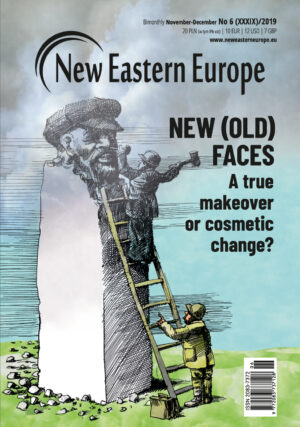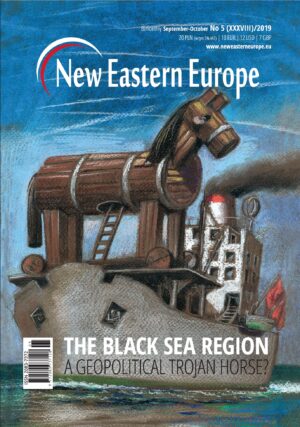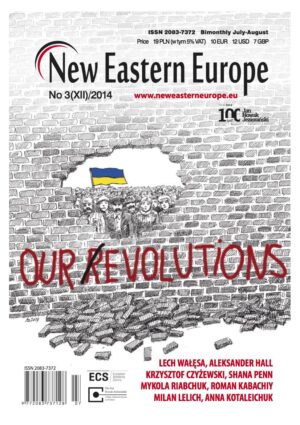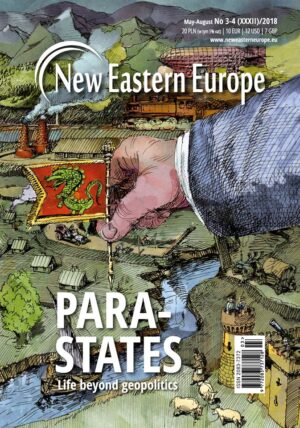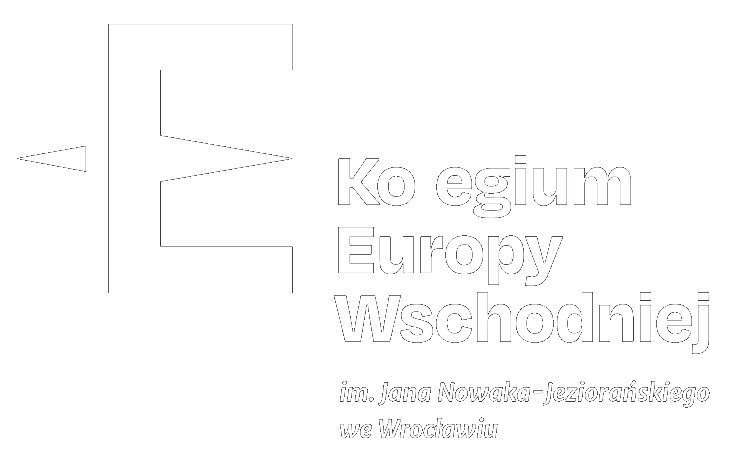Opis
Napoleon Bonaparte once said, “To know a nation’s geography is to know its foreign policy.” While this was clearly in reference to the geopolitical games of the 19th century, we can certainly see some relevance in the French ruler’s words today, especially when looking at the post-Soviet space. In the 21st century, however, geopolitics is not limited to physical geography, as Andrew Wilson notes in the opening interview to this issue. Postmodern geopolitics can be found as much in the information space as it is in the physical world. And this has become one of the defining features of the emerging world which is slowly taking shape; one that is based on greater competition, a vie for influence and greater multipolarity, with new and re-emerging powers such as China, Russia or Turkey playing transformative roles in the post-Soviet region. Clearly, this new multipolar world order is still in the embryonic form and thus we cannot fully define its shape from today’s perspective. All in all, the consequences of the new postmodern geopolitics should be more scrutinised if we are to make any sense of the diverse and dynamic processes taking place.
This issue also takes us through another transformative process that has been unfolding in our region since the fall of communism, namely the revival of Jewish life. For centuries, Central and Eastern Europe has been the centre of Jewish life yet only since the end of the Cold War has its renaissance started to take place.
Table of Contents
Postmodern Geopolitics
The limits of geopolitical thinking
A conversation with Andrew Wilson
The failure of Pax Americana
Paweł Kowal
A battleground of identity
Adam Balcer
Georgia between Russia and a rising China
Emil Avdaliani
Belarus in the multipolar world
Krzysztof Mrozek
Transdniestria’s new opening?
Piotr Oleksy
How to buy a republic
Jakub Janda
Germany in the post-Merkel era
An interview with Stephen Szabo
Can the Three Seas bring a new balance to European politics?
Petar Kurecic
Opinion & Analysis
What could a Serbia-Kosovo border swap achieve?
Florian Bieber
Customs wars in the Balkans
Jan Muś
Who can make Ukraine great again?
Anna Korbut
Ukraine’s economy. A chance for success
Paweł Purski
Integration impasse
Maxim Rust
The ghosts of Armenia’s past
Bartłomiej Krzysztan
Orbán’s dangerously familiar discourse
John Mastadar
Stories and Ideas
Russia’s grassroots are more active than the West may think
Andreas Rossbach
The Havana connection still stands
Mateusz Mazzini
History & Memory
War was not inevitable
A conversation with Dominic Lieven
The Revival of Jewish Life in Central and Eastern Europe
Nurturing a Jewish revival in Poland
An interview with Shana Penn
There are just too few of us
A conversation with Konstanty Gebert
Connecting the past with the present
Paulina Siegień
The second homeland. Georgian Jews throughout the centuries
Yulia Oreshina
The other history of Ukraine
Kateryna Pryshchepa
To be or not to be a Jewish student activist?
Alina Bricman
EASTERN CAFÉ
A western in Warsaw
Andrzej Brzeziecki
Inspirations and lessons for an oppressed world
Jordan Luber
An iron will
Josette Baer
A booze smuggler’s metamorphosis into the Righteous Among Nations




